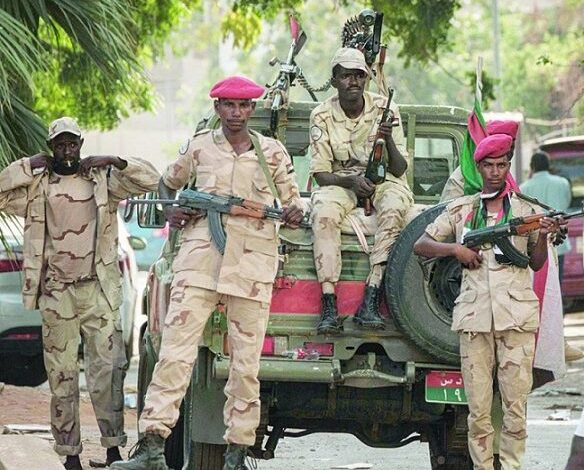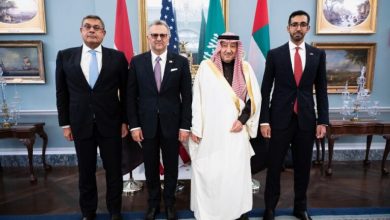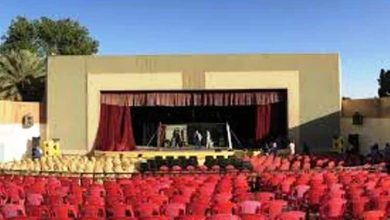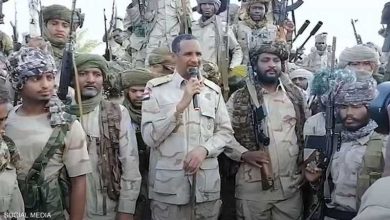The Janjaweed between Outcomes of Sudan’s War and Dream of Quraish State (1-2)

Sudan Events – Amir Abdul Majid
Are we facing an absurd war whose essence is disagreements between generals in the army and the Rapid Support Forces (RSF) over power, or an inevitable war whose origin extends over many years and has its own roots, plans, men, supporters and theoreticians? If we consider that those who wrote (Quraish 1) and (Quraish 2) are theoreticians who have their own ideas… Is it just the Framework Agreement war or a war to control Sudan and its land and establish a new state with a new name and new population, and what is the truth about the recent statements of the Governor of Darfur in which he said that the RSF seeks to establish a state in Darfur? .. The speech of the governor of the Darfur region brings us directly back to the idea of (Quraish), which talks about establishing a state for the Arabs of the diaspora, or what they are currently called (Janjaweed).
Who are the Janjaweed and what is the origin of the name?
It is likely that the origin of the name is disputed, even among the Arabs of Darfur and the Arabs of the diaspora, and there is no agreed upon definition. Rather, there are narrations. While some say that the origin of the word is derived from (Jin Shail Jim, a rich man and a horse rider), others claim that the word is attributed to a man called Hamid Janjwit, a gang leader who left. He took over the government in the 1980s and wreaked havoc and was known for killing people and displacing them. His name became associated with terror and fear, and over time he transformed from a Janjaweed into a Janjaweed. With time, any group of Arabs carrying weapons and riding horses was a Janjaweed group inside or outside Sudan, in the environment in which Arab groups were active. These groups were isolated islands, and due to the scarcity of resources, there were disputes and battles between them. They were not able to confront the government authorities here and there. Rather, they remained active in plundering, plundering, and killing in soft areas where state authority was absent, until a certain development occurred during the Libyan-Chadian war between Muammar. Gaddafi and Hussein Habré, a war in part related to Sudan, as Gaddafi was angry at the presence of Habre, who was prepared and armed by his enemy Numeiri to overthrow Jokoni Weedi, who was loyal to him. Also, Libya had pan-Arab ideological tendencies seeking to expand southward with the help of Arab groups, according to what was stated in the book by Sherif Harir and Triji. (Sudan Renaissance or Collapse) And since Hussein Habré was relying in his army on the Sara and Qaraan tribes from his tribe and the Zaghawa Hajrai, which are African tribes, Libya armed Arab tribes residing in the border strip between Chad and Sudan, most of which have extensions here and there, such as the Jaloul, Al-Atifat, Shatiya, Rizeigat, Mahria, and Beni Hussein. After the uprising of April 6, 1985, and the preoccupation of the Transitional Council, headed by Siwar Al-Dhahab, with the war with the Popular Movement and internal political contradictions, Libyan influence increased, and Gaddafi strengthened his supply lines to the Chadian opposition and to the Arab groups in Darfur, led by the Sheikh Bin Omar group, which received advanced weapons, some of which went to Darfur to some Arab tribes, and one of the teachers at El Geneina Industrial School had mentioned at that time that during their morning breakfast, a masked man came to them on a camel, dragging behind him something carried on wheels and covered, and told them that he wanted to sell that thing, which was a large cannon, and when they told him that they could not buy it, he left. The teacher says that he felt He was safe and was not terrified or afraid of anything…which means that the Janjaweed in this region benefited from an early period of political conflicts between the countries on whose borders they resided or in which they had tribal extensions. They also benefited from the contradictions in the relationship between Gaddafi, Habré, and Numeiri and from the absence of state authority in The transitional period and the period of the rule of Sadiq Al-Mahdi also benefited from the period of the Inqaz rule in strengthening their ranks and providing weapons.
The Janjaweed did not enter Darfur in large numbers for the purpose of settlement only during the era of Inqaz. They were preceded by a wave during which groups of Chadian Arab tribes entered Darfur with their livestock and sought to establish themselves there, supported by Libyan money and weapons, and under ideological slogans that spoke of the control of the Arab element over this region.. At that time, they settled. Some of them returned to the borders to practice plunder and theft amid disagreements about the feasibility of entering local communities and integrating with them. This is an opinion adopted by some of them and rejected by the majority, which believed that the solution for the Arabs of the diaspora or the Janjaweed was to establish a state for them in the region. This opinion was the prevailing one and the link between the tribal units scattered in the region. The desert, which carries papers from several countries, as it is rare to find in the council people who carry identity papers from one country…and usually each group has different identity papers, but the link between them is on the tribal level, and the unity of purpose and source of livelihood is the same, so it came out and spread among their elites ideas about what was known. At that time, in the state of Quraish, a state whose theory began in Quraish 1, which targeted Darfur and its citizens before reaching Quraish 2, which targets the authority in all of Sudan to rule it, and set a specific date for it, which is 2020, starting with preliminary measures, which is practically controlling the states of Darfur before controlling the capital and seizing power. The Quraish 2 plan paints a clear picture of the goals of the RSF, which here constitutes only the tip of the spear and an introduction to the goals of the Quraish 2 project and behind it the Janjaweed and the Arabs of the diaspora. It explains that what has happened so far is not random, but rather is part of a plan to create a new reality that produces a new state.



